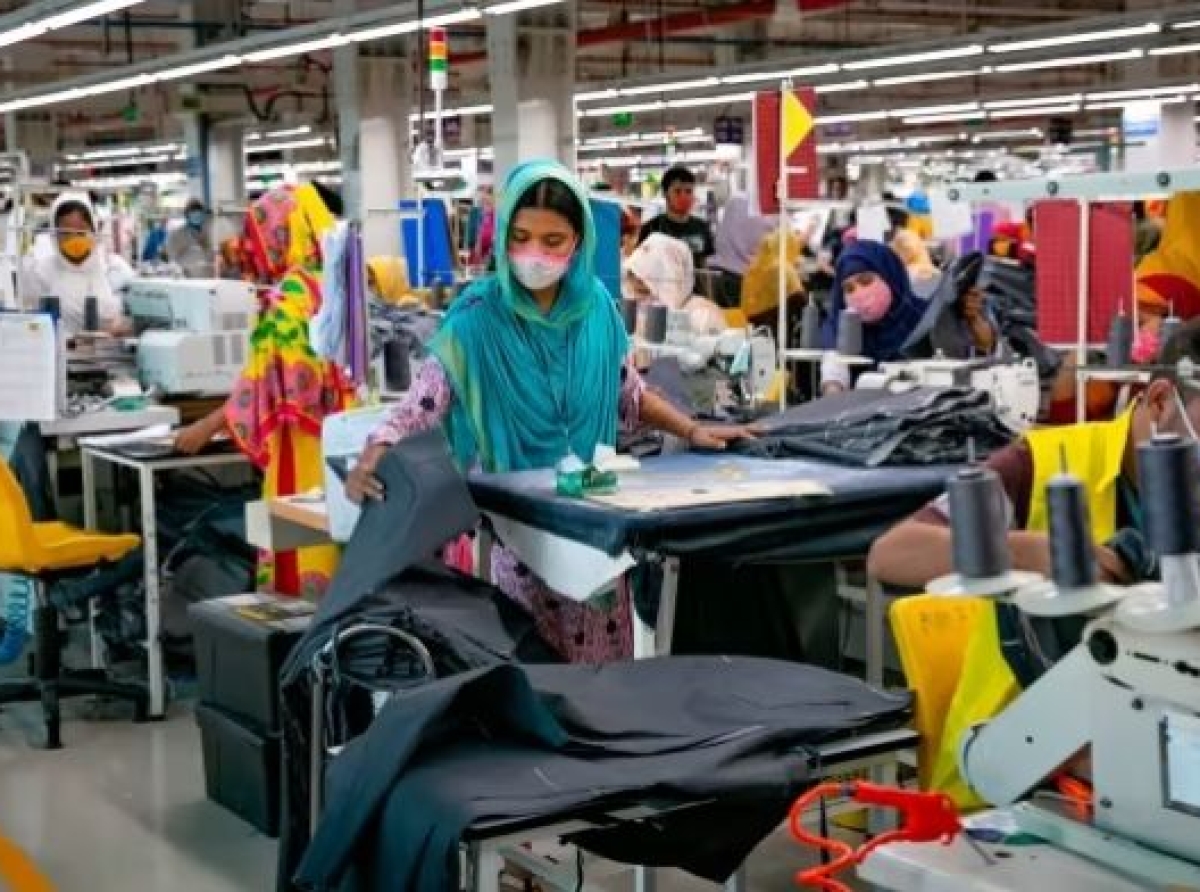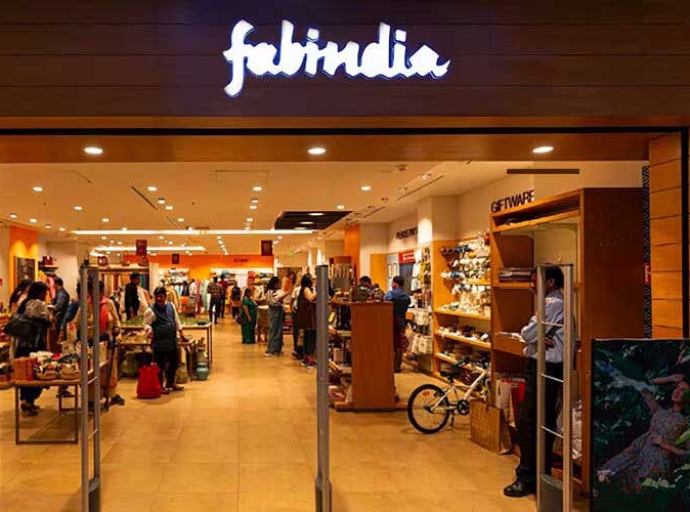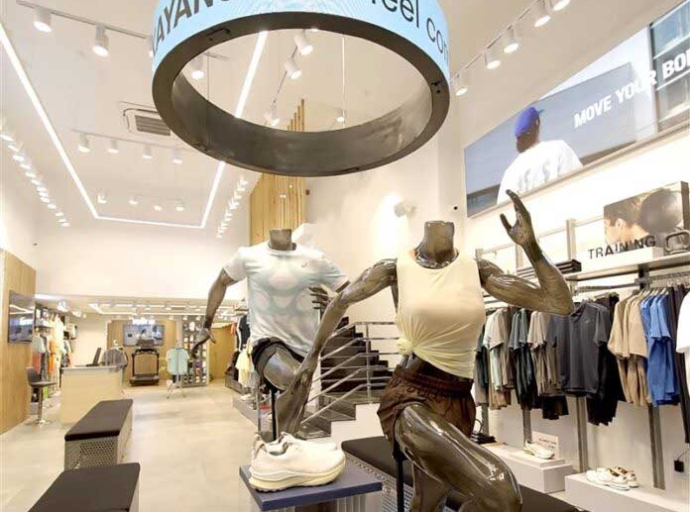13 May 2023, Mumbai
Bangladesh's garment industry is facing a challenging situation due to a significant decline in garment exports to major destinations, raising concerns about its future.
The decline in exports to the United States and the European Union has prompted Faruque Hassan, the President of the Bangladesh Garment Manufacturers and Exporters Association (BGMEA), to urge the government to implement measures to address the crisis.
The devil lies in details
According to the BGMEA's report, there was a 12.65% year-on-year decline in garment exports to the US in terms of US dollars between November 2022 and April 2023, with a decline of approximately 25.95% in quantity.
Apparel exports to major markets such as the USA, Germany, and Canada have experienced negative growth during the January-March period of 2023.
In contrast, garment exports to the EU increased by 7.10% in terms of US dollars, but there was a decline of 4.12% in quantity. The increase in unit price can be attributed to the rising costs of raw materials and freight charges, leading to international retailers and brands adjusting their pricing strategies.
Bangladesh's RMG Transformation
In an eventful journey spanning more than 40 years, the RMG industry of Bangladesh has come across a good number of formidable challenges and risen to them, even becoming stronger with renewed vigour and zeal to move ahead.
Although they may not have physically visited Bangladesh, countless individuals have experienced the country's warmth through its production of world-class apparel.
Despite pandemic setbacks, Bangladesh is set to become a middle-income country, with the ready-made garment industry accounting for 84% of its exports.
The RMG sector's growth and modernization over the past decade have been remarkable, though global fashion sourcing shifts could affect Bangladesh's position in the industry supply chain.
Improved factory safety and value-chain responsibility have led to the sector's success, though challenges persist in maintaining its economic vibrancy.
Vision
Bangladesh Garment Manufacturers and Exporters Association (BGMEA) has unveiled its vision -- a vision for a sustainable future, a better future. BGMEA consistently maintained that “sustainability is a marathon, not a sprint”. The industry has made a silent revolution in green transformation.
“The BGMEA has announced its 'Vision 2030' committed to hitting USD 100 billion in apparel export which ambitiously is aiming to account for some 10 percent of the world's apparel market share and, stated confidently that the same is quite achievable by taking multi-stakeholders work coherently for a collective cause.”
BGMEA appeals
Faruque Hassan, President, of BGMEA has emphasized the need for more collaboration between industry and academia to support the development of the RMG industry.
Hassan called on the government to implement several measures to address the challenges, including reducing the source tax to 0.5%, lowering the corporate tax on subcontracting incomes to 12%, and withdrawing the 10% tax on cash incentives for export earnings.
Additionally, he urged the government to provide a special 10% stimulus for the export of garments made from manmade fibers (MMF) and emphasized the importance of diversifying the types of garment items exported.
Hassan also highlighted the high global demand for non-cotton items, as 75% of all garment items sold worldwide are made from non-cotton fibers. Encouraging investment in MMF-based garments could enable Bangladesh to capture a larger share of the global garment market.
BGMEA sees $5bn from recycled garments
The RMG industry of Bangladesh is increasing the capacity of renewable energy generation in the sector.
The Bangladesh Garment Manufacturers and Exporters Association (BGMEA) estimated that exporting value-added garments made from recycled yarn could generate $5bn in revenue.
During a pre-budget discussion, the BGMEA suggested Bangladesh could become a hub for recycled garments and highlighted the export potential of recycled ready-made garments (RMG) products. BGMEA sought policy support from the government and suggested exempting local textile mills from the value-added tax on selling scraps to encourage investment in recycling.
BGMEA Urges VAT Waiver, Duty-Free Textile Waste Imports to Boost Recycled Fiber Production
The Bangladesh Garment Manufacturers and Exporters Association (BGMEA) is urging the government to waive the 7.5% and 15% VAT imposed on locally recycled fiber to attract foreign investment in the industry. The BGMEA also calls for the establishment of an HS code and duty-free facilities for importing textile waste to meet demand from buyers.
As international consumers shift towards circular fashion and recycled products, the BGMEA believes it is crucial to focus on reusing post-industrial waste or jute cloth as raw materials to increase the use of recycled fiber in the industry and ensure access to the European market for apparel items made from recycled fibers.
Measures undertaken
On 21 December 2022, the National Board of Revenue (NBR) of the Government of Bangladesh issued a gazette that permits the import of yarns from India through four new land customs ports, namely Bhomra of Satkhira, Sonamasjid of Chapainawabganj, Darshana of Chuadanga, and Banglabandha of Panchagarh. Furthermore, the government has waived the restriction on partial/multiple shipments while importing raw materials through Benapole port.
The government is currently working to enhance the infrastructure and administrative capacity of all land customs ports, including building road and rail networks and warehousing capacity.
BGMEA seeks duty-free access for US cotton exports
The Bangladesh Garment Manufacturers and Exporters Association (BGMEA) has once again requested duty-free access to cotton imported from the United States for the country's RMG exporters.
The move aims to reduce production costs, enhance competitiveness, and foster bilateral trade relations between the two countries.
While this appeal is a step towards strengthening the garment sector, Bangladesh must also address challenges such as worker safety, compliance with international labor standards, and diversification of its product range to move up the value chain.
The outcome of the BGMEA's appeal remains uncertain, but it signifies Bangladesh's efforts to strengthen its garment sector.
Snapshot
BGMEA analysis puts it like this, the top exportable apparel items of Bangladesh in 2022 were cotton t-shirts, men's or boys' cotton woven trousers, women's or girl’s cotton woven trousers, cotton jerseys & pullovers, MMF jerseys & pullovers, men's or boys cotton woven shirts, w/g cotton knitted trousers, men or boys synthetic woven trousers, men or boys cotton knitted shirts, and men or boys cotton knitted trouser.
True potential
The COVID-19 pandemic and shifting global markets have presented significant challenges to Bangladesh's garment industry, which is a key contributor to the country's economic success.
The sector has made great strides in improving conditions for its workers and achieving transparency in factory safety and value-chain responsibility since the tragic workplace disasters of 2012 and 2013.
However, the pandemic has slowed the industry's growth, and competition from other sourcing countries, particularly Vietnam, threatens Bangladesh's position in global supply chains.
To maintain its economic vibrancy, the sector must invest in innovation, upgrade its infrastructure, and diversify its offerings to include more sustainable and flexible options while continuing to prioritize worker welfare.
Despite facing increasing competition, Bangladesh's RMG sector remains attractive to global sourcing executives, but it must take transformative steps to capture its full potential and remain a leading garment exporter in the years ahead.
Bangladesh’s garment export to India will continue to grow, says Faruque Hassan, president of the Bangladesh Garment Manufacturers and Exporters Association (BGMEA).
Panorama
While the export growth for RMG in Bangladesh has shown positive year-over-year growth for July to March in FY2022-23, the recent decline in export earnings in March 2023 highlights the challenges posed by the global economic depression and rising inflation.
The garment industry is a crucial pillar of Bangladesh's economy, and the decline in exports has raised concerns about its future
The Bangladesh Garment Manufacturers and Exporter Association (BGMEA), in partnership with Bangladesh Apparel Exchange (BAE), organized the Week between 12th–18th November 2022 which included events such as Dhaka Apparel Summit.
However, by implementing measures to address the challenges and diversifying the types of garment items exported, Bangladesh can potentially capture a larger share of the global garment market and secure the industry's future.
Latest Publications


































